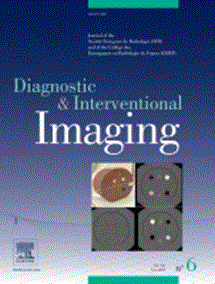Climate change and artificial intelligence in healthcare: Review and recommendations towards a sustainable future
IF 8.1
2区 医学
Q1 RADIOLOGY, NUCLEAR MEDICINE & MEDICAL IMAGING
引用次数: 0
Abstract
The rapid advancement of artificial intelligence (AI) in healthcare has revolutionized the industry, offering significant improvements in diagnostic accuracy, efficiency, and patient outcomes. However, the increasing adoption of AI systems also raises concerns about their environmental impact, particularly in the context of climate change. This review explores the intersection of climate change and AI in healthcare, examining the challenges posed by the energy consumption and carbon footprint of AI systems, as well as the potential solutions to mitigate their environmental impact. The review highlights the energy-intensive nature of AI model training and deployment, the contribution of data centers to greenhouse gas emissions, and the generation of electronic waste. To address these challenges, the development of energy-efficient AI models, the adoption of green computing practices, and the integration of renewable energy sources are discussed as potential solutions. The review also emphasizes the role of AI in optimizing healthcare workflows, reducing resource waste, and facilitating sustainable practices such as telemedicine. Furthermore, the importance of policy and governance frameworks, global initiatives, and collaborative efforts in promoting sustainable AI practices in healthcare is explored. The review concludes by outlining best practices for sustainable AI deployment, including eco-design, lifecycle assessment, responsible data management, and continuous monitoring and improvement. As the healthcare industry continues to embrace AI technologies, prioritizing sustainability and environmental responsibility is crucial to ensure that the benefits of AI are realized while actively contributing to the preservation of our planet.
气候变化与医疗保健领域的人工智能:面向可持续未来的审查和建议。
人工智能(AI)在医疗保健领域的飞速发展为该行业带来了革命性的变化,在诊断准确性、效率和患者治疗效果方面都有显著改善。然而,人工智能系统的日益普及也引发了人们对其环境影响的担忧,尤其是在气候变化的背景下。本综述探讨了气候变化与医疗保健领域人工智能的交叉点,研究了人工智能系统的能耗和碳足迹带来的挑战,以及减轻其环境影响的潜在解决方案。综述强调了人工智能模型训练和部署的能源密集性质、数据中心对温室气体排放的贡献以及电子废物的产生。为应对这些挑战,讨论了开发高能效人工智能模型、采用绿色计算实践以及整合可再生能源等潜在解决方案。综述还强调了人工智能在优化医疗保健工作流程、减少资源浪费和促进远程医疗等可持续实践方面的作用。此外,还探讨了政策和治理框架、全球倡议以及合作努力在促进医疗保健领域可持续人工智能实践方面的重要性。综述最后概述了可持续人工智能部署的最佳实践,包括生态设计、生命周期评估、负责任的数据管理以及持续监测和改进。随着医疗保健行业不断拥抱人工智能技术,优先考虑可持续发展和环境责任对于确保实现人工智能的益处,同时积极保护我们的地球至关重要。
本文章由计算机程序翻译,如有差异,请以英文原文为准。
求助全文
约1分钟内获得全文
求助全文
来源期刊

Diagnostic and Interventional Imaging
Medicine-Radiology, Nuclear Medicine and Imaging
CiteScore
8.50
自引率
29.10%
发文量
126
审稿时长
11 days
期刊介绍:
Diagnostic and Interventional Imaging accepts publications originating from any part of the world based only on their scientific merit. The Journal focuses on illustrated articles with great iconographic topics and aims at aiding sharpening clinical decision-making skills as well as following high research topics. All articles are published in English.
Diagnostic and Interventional Imaging publishes editorials, technical notes, letters, original and review articles on abdominal, breast, cancer, cardiac, emergency, forensic medicine, head and neck, musculoskeletal, gastrointestinal, genitourinary, interventional, obstetric, pediatric, thoracic and vascular imaging, neuroradiology, nuclear medicine, as well as contrast material, computer developments, health policies and practice, and medical physics relevant to imaging.
 求助内容:
求助内容: 应助结果提醒方式:
应助结果提醒方式:


